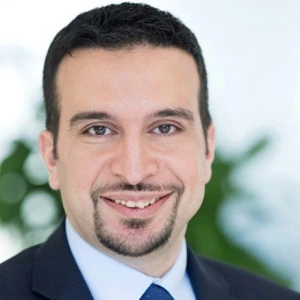AI and Generative AI (GenAI) have emerged as transformative forces across all aspects of modern economies, profoundly impacting productivity, innovation, and are set to enhance citizen daily routines and quality of life. Around the world, governments must ensure that their countries are equipped with the foundations to leverage this fast-developing technology. Their leadership is key to harnessing AI’s many benefits in ways that safeguard the wellbeing of industries, businesses, and individuals while promoting strategic adoption in service of national development goals.
In the GCC, where national visions hinge on economic diversification, innovation, and digital transformation, readiness to deploy and scale AI is becoming a critical differentiator.
To understand each country’s current readiness, we are launching the first edition of the GCC AI Pulse, based on the BCG 2025 AI Maturity Matrix. In this inaugural study, we assess the development of AI across the six GCC nations using BCG’s flagship ASPIRE framework — measuring AI Ambition, Skills, Policy, Investment, Research, and Ecosystem across 30+ indicators. Leveraging the results allows for a deeper understanding of the readiness of each country to scale AI initiatives in service of its national ambition and global aspiration.
GCC’s Position in the Global AI Landscape
The maturity matrix identifies four country archetypes based on their AI readiness, ranging from AI Emergents at the low end of the scale, through Practitioners and Contenders, to Pioneers at the high end. Two archetypes are prevalent across the GCC region: AI Practitioners (Bahrain, Kuwait, Oman, and Qatar), and AI Contenders (Saudi Arabia and UAE). Pioneers include such AI leaders as the US and China. To date, no GCC country has achieved AI Pioneer status, which points to a rich untapped potential.
Across the ASPIRE dimensions, GCC countries perform well in Ambition, with an average score just behind the AI pioneers. However, Skills, Investment, and Research & Innovation fall significantly below the global average, underscoring key capability gaps.
Four major GCC-wide observations stand out from the 2025 AI Maturity Matrix study:
- AI Ambition is high. Every GCC country has articulated a national AI strategy or roadmap. UAE launched its AI Strategy 2031 and appointed the world’s first Minister of AI. Saudi Arabia established the Saudi Data and AI Authority (SDAIA) and aims to be among the top 15 AI nations by 2030. Qatar’s National Vision 2030, and Oman’s AI Program under Vision 2040 further reflect this unified ambition.
- Countries are building their Ecosystems. Countries are making tangible investments in infrastructure. UAE leads with 35 data centers and the region’s highest public cloud spend per employee (USD 228). Saudi Arabia has seen 72% of its companies adopt a strategy to deploy emerging AI technologies, backed by cloud and high-performance computing (HPC) infrastructure. Oman and Kuwait are also expanding digital infrastructure through partnerships with Microsoft and Google Cloud.
- Despite some large-scale commitments, gaps persist in Investment and R&D. KSA and UAE have announced major investment funds, but broader VC activity remains nascent. Research output is also constrained, with most countries producing modest numbers of patents or academic papers.
- Talent remains a constraint. While KSA and UAE have had considerable and promising success in attracting and retaining AI specialists, their numbers remain limited: KSA has almost 5,000; UAE almost 7,000. This is especially relevant in contrast to the success of similar contender countries like Germany (more than 40,000). While there are national skilling programs — such as Qatar’s local upskilling initiatives and Oman’s Makeen program — none have yet built sustainable AI talent ecosystems.
Key Country Highlights
Beneath these broad regional observations lie important country-level distinctions that highlight each nation’s progress, priorities, and remaining challenges.
- United Arab Emirates is the world’s foremost sovereign investor in AI, with the latest announcement being the 100-billion USD AI-focused investment fund (MGX). It has created a leading ecosystem and cloud infrastructure. Its greatest opportunities are to close the R&D and global innovation output gap, while continuing to build and attract AI expertise to grow its talent pool.
- Saudi Arabia benefits from a robust digital foundation and regulatory leadership. It can now focus on growing domestic AI talent, activating its investment fund, accelerating local innovation, and scaling its ecosystem.
- Qatar ranks above average within its peer group (AI Practitioners) in its modern infrastructure, comprehensive governance, and well-defined ambition. Its immediate opportunities are to scale research, deepen AI market maturity, and attract specialized talent.
- Oman’s national strategy and digital infrastructure investment provide a solid starting point. To build on this momentum, the country should expand AI-specific funding and further develop its specialized talent pool.
- Kuwait has developed a draft AI strategy and foundational infrastructure. Next steps include focusing investments and operationalizing a governance model. In parallel, Kuwait should expand capacity-building initiatives and deepen its AI talent pipeline.
- Bahrain is showing policy traction and fintech-driven ecosystem activity. Its opportunity now is to build sustainable talent pipelines and expand R&D.
Subscribe to our Public Sector E-Alert.
Takeaways and Next Steps
The GCC’s strength lies in its clearly defined national ambitions, strong digital infrastructure, and early-stage AI ecosystems—especially in the KSA and UAE. At the same time, countries have significant opportunities to expand R&D capabilities, increase specialized AI funding, and build sustainable talent pipeline.
Governments in the region would do well to embrace the following priorities:
- Strengthen regional collaboration to share infrastructure and drive innovation.
- Boost AI investment with dedicated funds and VC ecosystems.
- Accelerate AI talent development through education, reskilling, and global attraction.
With strategic action and focused investment, GCC nations are well positioned to evolve from AI Practitioners and Contenders to globally leading AI Pioneers.
























